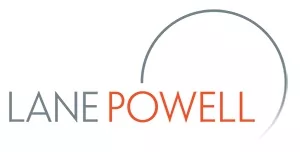What the New Law Requires:
Washington's Equal Pay and Opportunities Act has been amended again, placing another disclosure and compliance obligation on Washington employers during the hiring process. This amendment will require employers with 15 or more employees to disclose the wage scale or salary range in job postings, along with a general description of "all of the benefits or other compensation to be offered to the hired applicant."
Importantly, this law will apply to all positions, including exempt positions. Private-sector employers have often closely guarded salary information for a variety of reasons, including to remain competitive in the market. This new law designed to promote transparency and close gender pay gaps will likely create some challenges, so employers should take steps now so they are prepared to comply when this law becomes effective on January 1, 2023.
The Washington EPOA, chapter 49.58 RCW, defines "compensation" to mean "discretionary and nondiscretionary wages and benefits provided by an employer to an employee." The new law broadly defines "posting" as "any solicitation intended to recruit job applicants for a specific available position." It includes recruitment "done directly" or "indirectly through a third party," and postings done electronically or by hard copy.
In contrast, as originally passed, the EPOA requires employers to provide the minimum wage or salary only when an applicant requests, and only after the applicant has initially been offered, a position. The amendment did not alter the EPOA's requirement to disclose the hourly rate or salary to an existing employee who is offered an internal transfer or promotion only upon request. Lane Powell's previous legal updates found here and here discussed these requirements of the EPOA.
What the New Law Does Not Tell Us:
Unfortunately, the new law leaves employers guessing about some things:
- Does the requirement pertain to job postings for positions outside the state, including remote positions?
- Does the posting requirement apply to employers with more than 15 employees, but less than 15 located in Washington?
- How much detail must be disclosed regarding benefits (e.g., parking subsidy, vacation accruals, equity grants)?
- What are the consequences if the compensation level or benefits change during the hiring process?
Penalties and Consequences of Noncompliance
Employers who violate the new law can be sued. Courts are authorized to award damages of no less than $5,000 (or actual damages, whichever is greater), and reasonable attorneys' fees and costs. Applicants or employees can also file a complaint with the Department of Labor and Industries, which is authorized to issue civil penalties of at least $500, and award actual damages and attorneys' fees and costs to the complaining party.
What Should Employers Do Now?
In anticipation of the January 1, 2023 effective date, employers should conduct privileged internal audits and consider doing so with the assistance of counsel to protect privilege. Recommended steps include:
- Auditing employee compensation to ensure employees (exempt and non-exempt) are paid consistently with established market rates and without regard to gender.
- Conducting a pay-equity analysis to ensure parity in compensation before disclosure obligations take effect, and continuing to monitor for compliance with the new law.
- Establishing objective standards or criteria to determine where an applicant will fall within the range established for a position.
The content of this article is intended to provide a general guide to the subject matter. Specialist advice should be sought about your specific circumstances.
We operate a free-to-view policy, asking only that you register in order to read all of our content. Please login or register to view the rest of this article.




